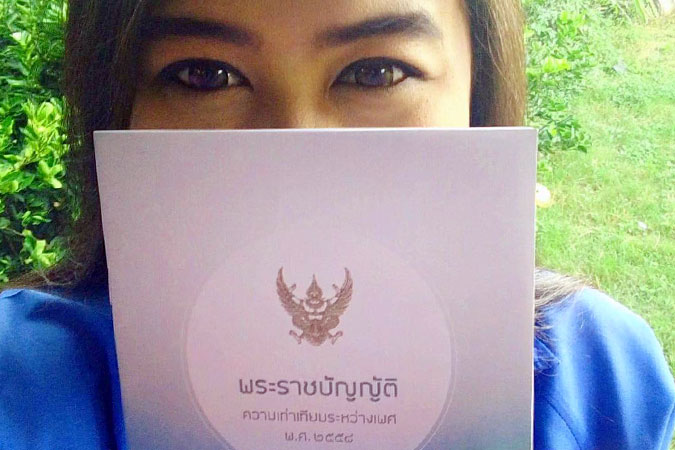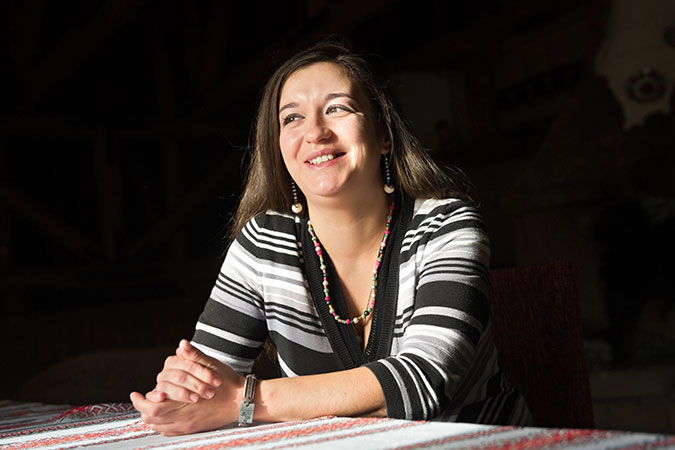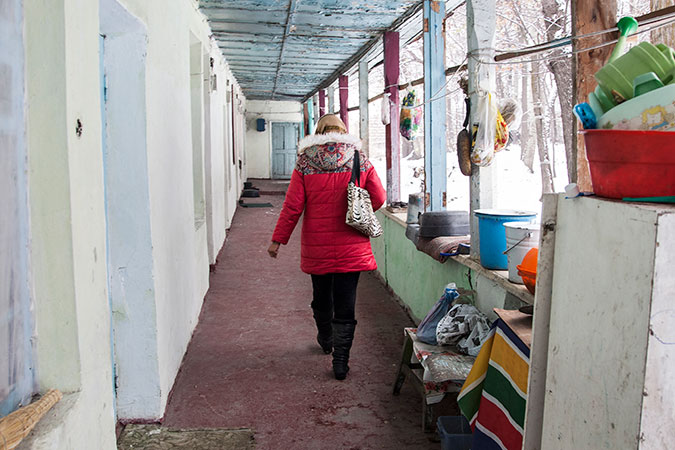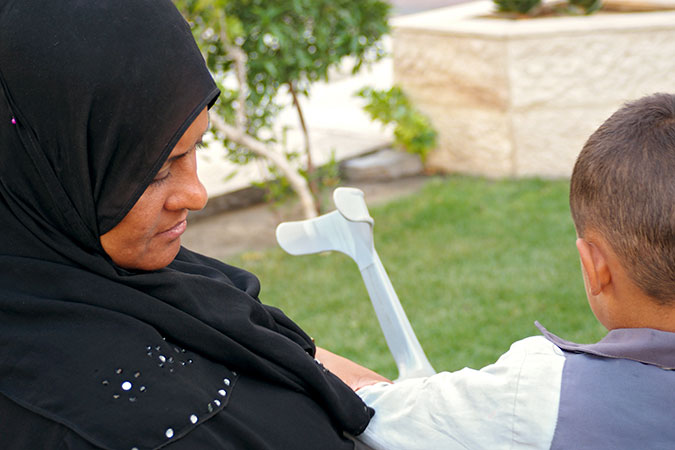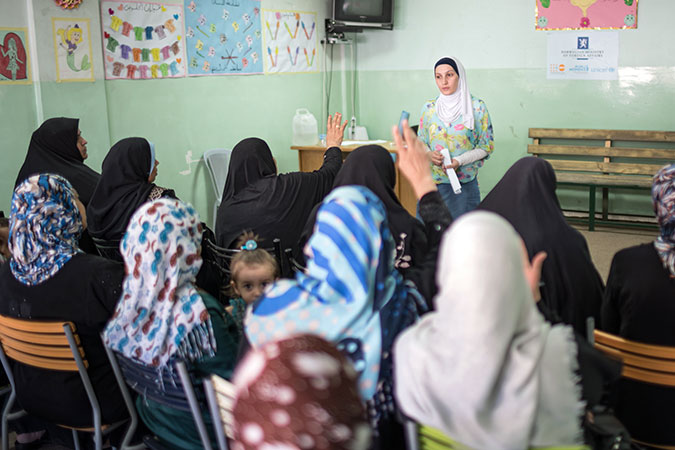Rise
In the words of Nongnee Kondii: “I was told that being a lesbian woman is a sin”
Nongnee Kondii is a 25-year-old lesbian woman from Yala, a southern border province of Thailand. She never felt safe expressing her sexual orientation at home or in her community. When she experienced a traumatic sexual assault, she kept silent at first. In May 2016, after participating in a gender retreat for young people organized by Rainbow Sky Association(RSAT), an organization that works to promote the rights of lesbian, gay, bisexual women, transgender and intersex persons (LGBTI) in Thailand, supported by the UN Trust Fund to end Violence against Women (managed by UN Women), Kondii decided to speak out and pursue the path of justice.
“I fell in love with a girl when I was in 10th grade. It felt right, and we were in a relationship for seven years. When my mother caught us, she separated us. I was sent off to live in my grandfather’s farm house, far from everyone. I was 17 at the time.
It wasn’t until I went to college that I could express myself as a lesbian woman again.
But then something horrible happened—a man who was helping us obtain a public health certificate, sexually assaulted me and three of my friends. We were terrified and ashamed. I didn’t say a word about this to anyone, until attending the RSAT camp.
The experience in RSAT changed the way I saw things. I realized that my friends and I had been targeted and punished because we were lesbians. What happened to us was a punishable crime! I consulted with RSAT and Mae Ann, founder of Baan Boontem shelter, another RSAT affiliated NGO, and requested their support in my pursuit of justice.
When I first tried to report the crime, the police officer questioned why I was there at the police station at all. He wasn’t convinced that our case could be taken to court. I showed him all the relevant articles in the Thai law that would apply to my case. I spent two days reasoning with him. There was no privacy, no private room where I could talk. At one point, he asked me, “how do lesbians ‘do it’?”Read more►
More stories
Living with HIV and violence: Women of Ukraine speak out and build solidarity
Hanna Lilina found out about her HIV status during a prenatal checkup. The 30-year-old had just left her abusive partner and fled the conflict in eastern Ukraine with her one-year-old daughter. “I did not know how to identify violence. Having experienced it since childhood, I didn’t even think to fight it,” says Lilina. In Ukraine, 35 per cent of women living with HIV have experienced violence since the age of 15. Many women cannot definitively say that they have experienced violence, because they have suffered and witnessed gender-based violence through generations and it has been normalized. For HIV positive women, lack of awareness, as well as shelters and support services poses additional challenges. Local peer-support groups and the National Women’s Forum on HIV, supported by UN Women is bringing awareness, action and new beginnings for HIV positive women survivors of violence. Read more►
In the words of Luiza Karimova: “We were sex slaves”
Originally from Tashkent, Uzbekistan, Luiza Karimova left her son with her family and travelled to Osh, Kyrgyzstan to find work. In Kyrgyzstan, she was sold into sex slavery and trafficked into Dubai. After 18 months, she was arrested and sent to jail. Today, Karimova works with Podruga, an organization based in Osh, Kyrgyzstan, which is supported by UN Women. Podruga works rise against violence toward women and assists women subjected to sex and drug trafficking.
“I was a 22-year-old single mother, desperate for work when I left my son with family and travelled to Osh to find work.” Read more►
In the words of Jana Mustafa: “Disability should not stop anyone from starting over”
“I lost my left leg when I was one-and-a-half years old. It was from a faulty vaccination that my cousin and I received. My cousin died on that day,” says Jana Mustafa from the Gaza Strip. But Mustafa wasn’t ashamed of her a disability. She was confident and had a good. But then, she got married, and the abuse started. After years of domestic abuse, Mustafa left her husband, with the assistance of the Hayat Centre, an organization supported by UN Women. “When I received the paper saying that the divorce is approved, I cried like a baby; I was so relieved,” she says. Today, Mustafa hopes to open a small business to support herself and her six-year-old son Jamal. Read more►
Survivors find hope in women’s centres across Jordan
At 16 years of age, Maysam Hamed found herself in the women’s prison in Jordan. Her crime was that she had run away from child abuse at her father’s house, and had found herself on the streets, until the authorities took her in for administrative detention. What follows is a cycle of abuse that Hamed is finally able to break out of, with sustained support through a multi-sectoral joint programme by UN Women, UNICEF, UNFPA and the Jordanian Women’s Union.
“I heard about this girl kept in prison with no criminal charges and I immediately mobilized our lawyers and specialists to see how we could help. I even went to her father’s house to get his permission to release her [as the law required] and I offered to support her in finishing school,” shares Nadia Shamrouk, General Manager of the Jordanian Women’s Union (JWU), a national non-profit organization working at the frontline of supporting survivors of violence in Jordan. Read more►
